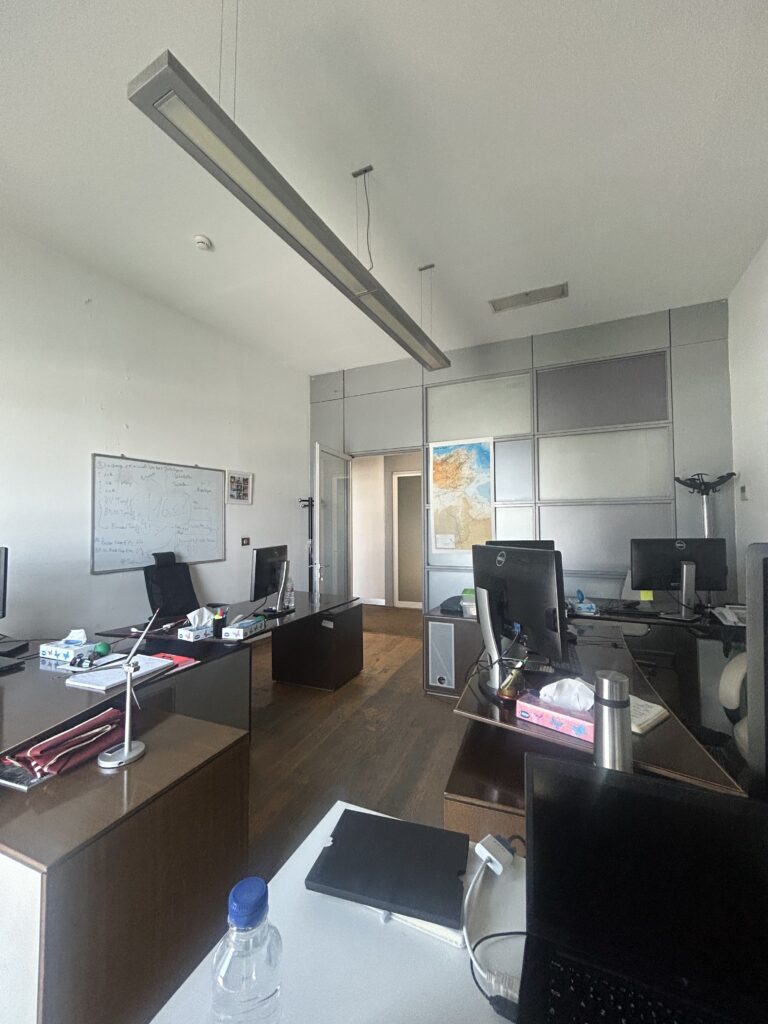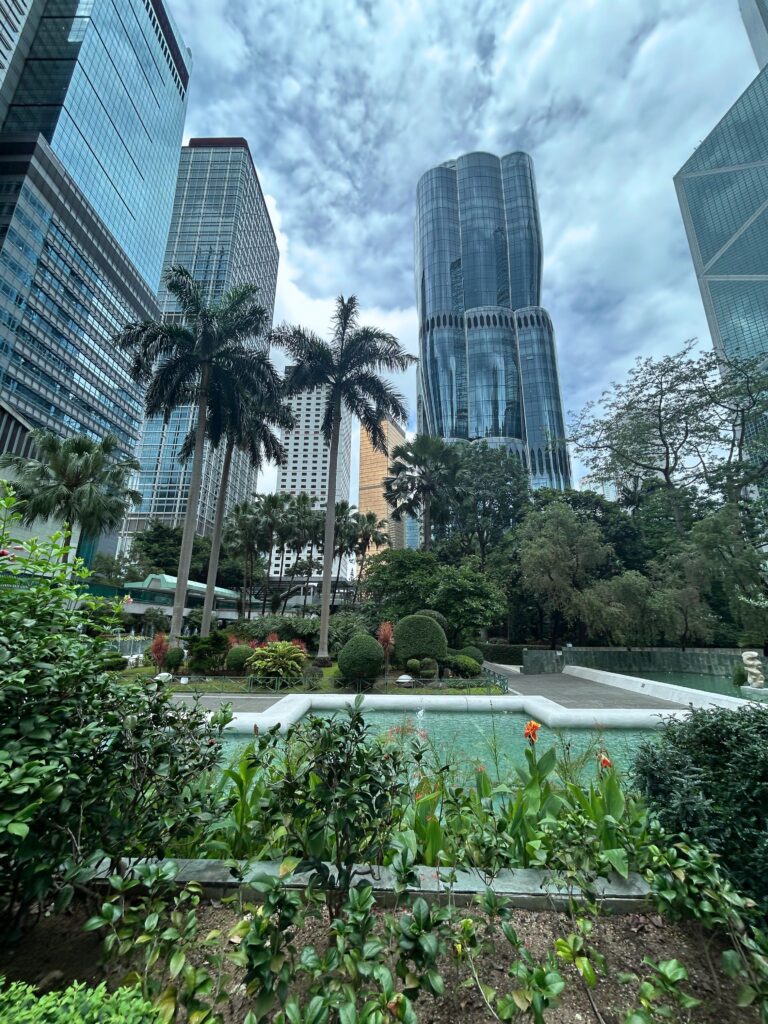
Interview with Lawyer and University of Minho Law School Administrative Director: Sandra Amorim
GRIP: Legal Research at University of Minho Law School in Braga, Portugal
Hana Menkari, one of the Global Research and Internship Correspondents, shares her experience abroad during Summer 2025. Follow along with the group of correspondents on our blog and look out for their images on the @pennabroad Instagram feed.
“Law was one of the most popular areas for internship possibilities in the University of Minho… the JUSGOV center of the University of Minho Law School covers the six major types of law, and therefore we selectively choose around six research interns every year so that we cover each sector.”
Sandra Amorim
Administrative Director, University of Minho Law School
Sandra Amorim is an attorney pursuing her master’s degree in Braga, Portugal.
As many of us are aware, this career aspiration comprises a substantial population at the University of Pennsylvania. This interview that I conducted with Sandra allows us to understand the value of law through the lens of a Lawyer and an Administrative Director at the University of Minho Law School in the oldest city of Portugal: Braga.
The initial focus of the questions began with Sandra’s career trajectory. We discussed her aspiration to enter the legal profession and her motivation for pursuing this career. She started her journey by attending the University of Minho Law School, then worked full time at a law firm as a litigator until 2004. That same year, she pursued a part-time position to develop the Master’s Degree Program at the law school. The first master’s degree program established at the University of Minho specialized in Human Rights. The human rights sector within law has always sparked an interest in her which encouraged her to advance these programs. Following the establishment of the Master’s Degree Programs, Sandra pivoted to work full time at the University and has worked as the Administrative Director since 2013. I continued this portion of the interview by asking whether major turning points, challenges, or decisions shaped her professional journey. She stated that attending law school was her most substantial challenge throughout her professional career. She expressed the level of difficulty as extreme. Despite multiple failures, her stamina and drive fueled her perseverance.
Our conversation shifted to Penn’s relationship to JusGov. The program between UPENN and EDUM (the Law School of Minho) has been running since 2017. Sandra stated that when the program started, students applied to the program through Penn. However, there was not a complete structure of the legal research program at the time, which allowed students to research topics of their interest without the supervision of a professor. She mentioned that the research continues to remain guided by the six types of laws established in the JusGov website (CEDU – Studies in European Union Law, DH- Human Rights, E. Tec – State, Enterprise, and Technology, GLOB – Globalisation, Democracy, and Power, JusCrim – Criminal Justice and Criminology, JusLab – Justice Lab).
The latter half of the interview then focused on advice-based questions. Our conversation followed advice for students preparing to intern in a new country and culture. She encouraged students to arrive in this country with an open mind, stay true to their values, but think out of the box. Considering that for most of the school year, Penn students are facing many challenges, including difficult classes, social belonging, and learning to become an adult, students should step out of that atmosphere during the summer. Students are encouraged to engage in summer internship programs that allow them to think about what’s on their minds and what impels them to wake up every morning. She continued to express that the very basis of the research conducted by youth can change the world, especially since they have the possibility to publish. Their opinion can have a very positive impact on others and assist with kickstarting their future career.
I followed this question to better understand how the University of Minho Law School Research Team can gauge whether the student is an excellent fit for the research program. Sandra expressed that the University of Minho JusGov Center emphasizes working with independent interns, self-sufficient, hard-working students who follow their deadlines consistently, and students who are not procrastinators, as she learned from past experiences that the interns who procrastinated tended not to enjoy the holistic research experience.
The conversation pivoted to understanding JusGov’s steps to ensure interns develop confidence and independence during their time here. As Sandra serves as the liaison between JusGov and Penn, she aims to motivate students with consistent emails and meetings throughout the summer and check in with supervisors to ensure that their role is maintained. They also value that interns develop their independence and confidence through self-exploration and venture to explore Portuguese culture outside of JusGov research. The cultural aspects are equally important in understanding the native people’s daily lives, which enriches the research experience as a whole.
The last question discussed advice for students just beginning to think about their career paths. Sandra stated that students should attempt to understand their career interests by initially finding an internship or part-time job through a career that they admire. If you seek and obtain hands-on experience, it will assist you in deciding on what career is most fitting in the long term or help you narrow down career options. The first step is to email certain companies requesting whether internship positions are available. This quick and simple email can open doors you were unaware could be opened.
Nonetheless, the University of Minho JusGov Research Program and the Global Research and Internship Program (GRIP) as an alliance encourages students to cultivate a professional relationship between the intern and the Professor to enhance the research at hand at the JusGov center. Even so, through the many years that Sandra facilitated the program, she expressed that interns appreciate this model better (exploring a topic of interest under the Professor’s research). Interns are encouraged to talk about their interests and find ways to weave them in with the interests of the supervisor’s research, therefore progressing a research topic that interests the research student and JusGov alike.
Read Related Blogs

Independence Does Not Mean Loneliness
GRIP: World Medical Association, Ferney-Voltaire, France Over the past nine weeks of my internship at the World Medical Association, independence has been a defining theme. Not only am I the…

My Internship Experience with SIC
GRIP: Swicorp Infra Capital (SIC), Tunis, Tunisia I stepped out of my taxi and into Lac II, the financial district that runs along the lake in Tunis. The building was…

The Sauce
GRIP: Elephant Community Press in Hong Kong From tenth to twelfth grade, I attended a small, college-prep school called Miller. I can say with quite a degree of certainty that…